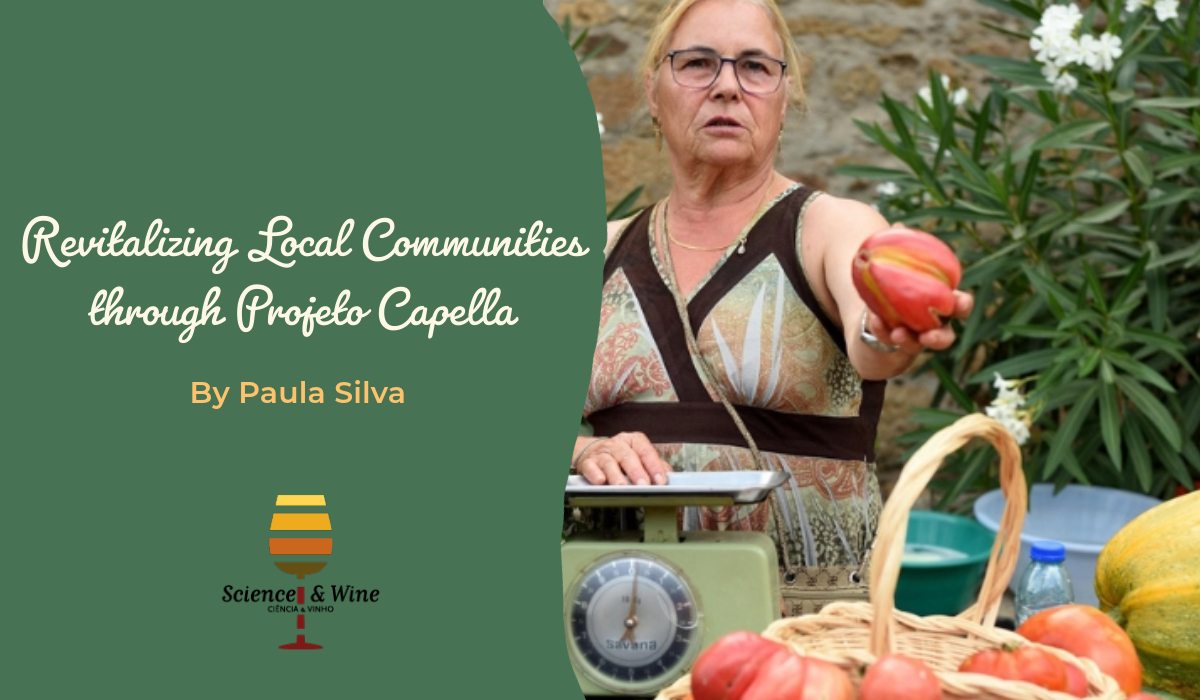In a world where concerns about food quality, public health, and the welfare of farmers are taking centre stage, initiatives like Projeto Capella shine as beacons of hope for sustainable development at the local level. Organized by @Greengrape, Projeto Capella stands as a remarkable endeavour within the realm of cultural and touristic animation. It has garnered support from the Junta de Freguesia de Arroios and established a fruitful partnership with Quinta do Paço. This initiative, already involving many individuals, including dedicated volunteers, finds a unique spot within the grand tapestry of the VIII edition of the Concurso Tomate Coração de Boi do Douro.

The Projeto Capella marketplace, nestled within this festivity, takes on a role that extends beyond the realm of commerce. It’s an embodiment of a more significant movement that resonates with global shifts in attitudes toward food. As the world grapples with the consequences of pesticide misuse and the surge in obesity and associated illnesses due to industrial processing, the significance of factors like origin, ecological impact, toxicity, and animal welfare are coming to the forefront of consumers’ choices.
This evolving landscape is in harmony with the European “Farm to Fork Strategy,” highlighting the shift towards sustainable food systems. The very core of these systems presents fresh opportunities for rural movements and farmers. This new trajectory is a response to the broader struggle against dominant agri-food norms. Beyond just critiquing corporate food regimes for their environmental and health repercussions, these movements are carving out new paths for survival and autonomy.

One surprising outcome of these endeavours has been the emergence of alternative food markets. O Projeto Capella involvement in the Concurso Tomate Coração de Boi do Douro embodies this spirit. These markets transcend mere economic transactions; they become platforms where agroecology advocates exchange more than just produce. They convey values of equity, justice, social participation, and sustainability. However, the capacity of these alternative markets to absorb all agroecological production, certified organic or not, remains limited. This has prompted peasant movements to navigate the shelves of transnational retail giants, often striking a delicate balance between principles and pragmatism.
Over the past decades, these movements have transitioned from confrontation with the capitalist-driven Market to creating novel avenues of commerce. The new economic sociology places markets not just as exchange mechanisms but as cultural and political arenas. They’re spaces where identities, values, and lifestyles clash and negotiate.
In the realm of food, this theory gains life. Food markets borne from the collective efforts of social movements represent spaces where more than just commodities are traded. These spaces witness struggles for resource redistribution and the recognition of new social values. The concept of “civic food networks” aptly captures the essence of markets nurtured by civil society engagement. These networks embrace citizenship, food democracy, and participation, emphasizing equitable contributions from every citizen.

This redefines local food systems as a shared good and right. Such shifts birth social innovations like participatory guarantee systems, empowering family farmers, fostering social inclusion, and building a bridge of mutual support between producers and consumers.
In the heart of these transformative dynamics lies Project Capella. Amidst the festive celebration of Tomate Coração de Boi do Douro, it stands as a microcosm of a movement challenging the norm, nurturing sustainability, and sowing the seeds of equitable food systems. As it brings together volunteers, partners, and communities, Project Capella becomes not just a market stall, but a symbol of change and resilience, a cornerstone of the sustainable future we yearn for.

